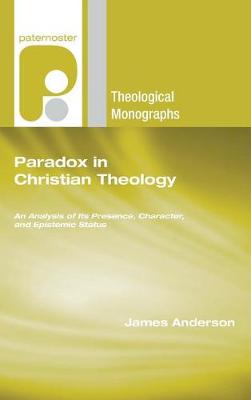The case presented in this book has significant implications for the practice of systematic theology, biblical exegesis, and Christian apologetics.
Does traditional Christianity involve paradoxical doctrines
doctrines that present the appearance (at least) of logical inconsistency?
what is the nature of these paradoxes and why do they arise?
What is the relationship between "paradox" and "mystery" in theological theorizing?
And what are the implications for the rationality, or otherwise, of orthodox Christian beliefs?
In Paradox in Christian Theology, James Anderson argues that the doctrines of the Trinity and the incarnation, as derived from Scripture and formulated in the ecumenical creeds, are indeed paradoxical. But this conclusion, he contends, need not imply that Christians who believe these doctrines are irrational in doing so. In support of this claim, Anderson develops and defends a model of understanding paradoxical Christian doctrines according to which the presence of such doctrines is unsurprising and adherence to paradoxical doctrines cannot be considered as a serious intellectual obstacle to belief in Christianity.
- ISBN10 149824937X
- ISBN13 9781498249379
- Publish Date 6 March 2007 (first published 1 March 2007)
- Publish Status Active
- Imprint Wipf & Stock Publishers
- Format Hardcover
- Pages 346
- Language English
